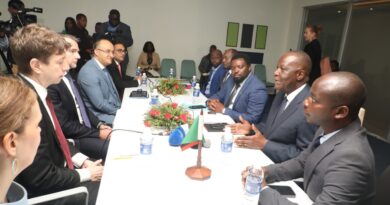EAZ Credits Sound Policies and Strong Fundamentals for Kwacha’s Appreciation
The Economics Association of Zambia (EAZ) has attributed the appreciation of the Zambian Kwacha and the country’s optimistic economic outlook to solid macroeconomic fundamentals, effective fiscal management, and improved productivity across key sectors.
In a detailed media statement issued Tuesday, EAZ President Dr. Oswald Mungule outlined how both domestic and external factors are driving the country’s current economic stability. Central to this progress, he said, is a surge in tax inflows that has strengthened government liquidity and enabled the continued rollout of national development programmes.
“Zambia is experiencing a favorable macroeconomic environment,” Dr. Mungule stated. “A combination of higher tax receipts, a weak U.S. Dollar, and robust agricultural performance is supporting Kwacha appreciation while reducing the country’s dependence on food imports.”
The report highlights that the Bank of Zambia has maintained an effective monetary policy rate regime that’s responsive to inflation trends. Additionally, a notable increase in U.S. dollar supply by mid-June 2025—driven by quarterly and annual tax deadlines—was compounded by strong mining production and improved metal export performance, all contributing to the Kwacha’s strengthening.
EAZ also pointed to growing domestic demand for the Kwacha in trade and local transactions as a sign of rising confidence in the national currency and economic direction. Meanwhile, subdued import demand for food and energy, largely due to local productivity and substitution, has eased pressure on foreign reserves.
A recent decline in diesel and fuel prices has further reduced transportation and production costs, creating relief for businesses and consumers while enhancing economic resilience.
While the Association acknowledged risks from ongoing geopolitical tensions, particularly the conflict involving the U.S., Israel, and Iran—which may influence global oil prices—it stressed that Zambia remains on a strong economic trajectory.
“Continued investment partnerships with countries like Namibia, Angola, and the DRC, along with domestic value-chain reforms and policy consistency, will be key to sustaining this momentum,” Dr. Mungule added.
The EAZ emphasized the importance of structural reforms and sovereign-to-sovereign portfolio investments in ensuring long-term economic resilience, while reaffirming its commitment to supporting sound economic policymaking in Zambia.



